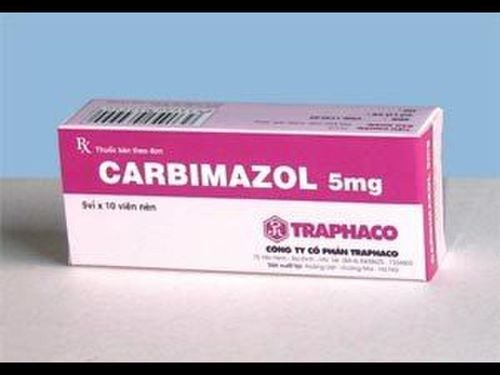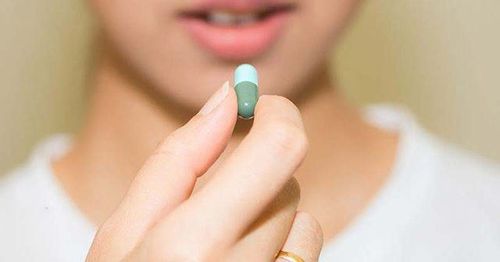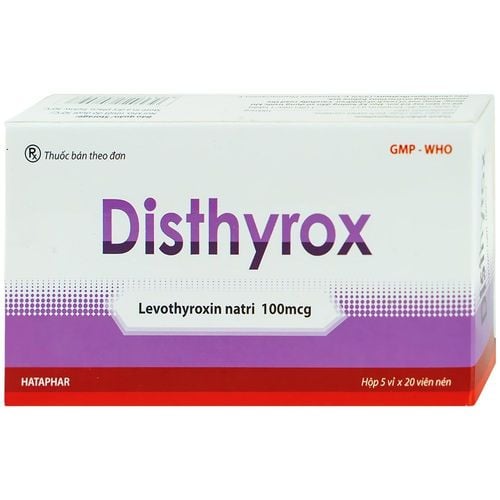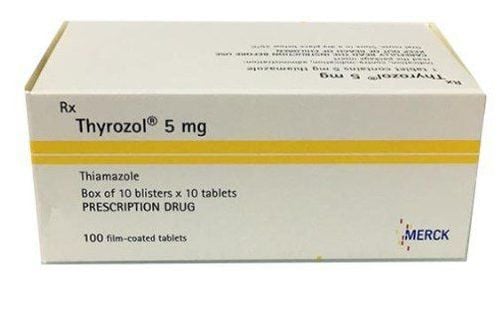This is an automatically translated article.
Thyroid toxic nodules is a disease occurring in the thyroid gland, often seen in women over the age of 40. After Graves, this is the most common cause of hyperthyroidism (accounting for 15 to 30%).
1. What is thyroid toxicity?
The thyroid gland is a butterfly-shaped endocrine gland located in the lower front part of the neck. The function of this organ is to help produce thyroid hormone - a hormone that helps the body use energy, stay warm, and help the brain, heart and other organs work properly. Accordingly, thyroid nodules is the term used to refer to abnormal growths in thyroid cells, which develop to form tumors in the thyroid gland. Although the majority of thyroid nodules are benign, a small percentage are thyrotoxic nodules.In areas of iodine deficiency, toxic nodular goiter has a higher incidence, divided into mononodular goiter and multinodular goiter. If the thyrotoxic nodule is more than 2.5 cm in size, it usually progresses to hyperthyroidism. The clinical picture is that the patient has thyroid nodules as well as signs of thyroid hormone toxicity.
Thyrotoxic goiter is a common thyroid disease, because only after Graves' disease, this is one of the most common causes of hyperthyroidism. The disease is more common in women (accounting for 90 to 95%), the common age is over 40 years old.
MORE: Thyroid nodules form quietly, hard to detect
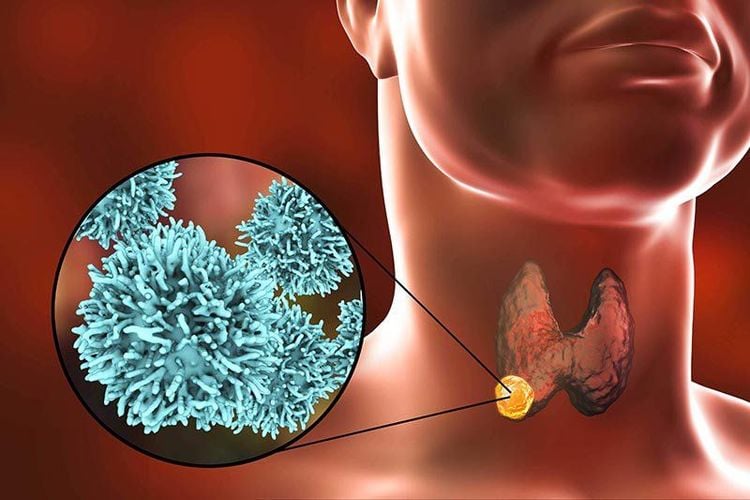
Bướu nhân độc tuyến giáp là một bệnh lý tuyến giáp thường gặp
2. Diagnosis of toxic thyroid nodules
2.1. Clinical diagnosis The patient herself was diagnosed with goiter many years before (mean ten years) but did not have symptoms such as tracheal or esophageal compression, no pain. In addition, the patient has signs such as:
Body is thin, can lose weight from 20 to 30 kg; There is a fear of heat, easy sweating (to distinguish it from hot flashes in menopausal women); Cardiac arrhythmias; Frequent diarrhea;... 2.2. Subclinical diagnosis Quantification of thyroid hormone
T3 and T4 in the blood plasma increases, sometimes T3 will usually increase mainly; TSH (thyroid-stimulating hormone/thyroid-stimulating hormone) plasma decreases; Iodine contamination may be detected; The TRH test is unlikely to respond. Immunoassays
Antithyroid and anti-TSH receptor antibodies are almost undetectable.
Biological probe
SBP and blood calcium increased but not constant.
Imaging studies
Thyroid scintigraphy with Tc 99m or I131 or 123I Unprepared radiograph: images show a sunken thyroid, tracheal compression and calcification. CT scan or magnetic resonance imaging (MRI): to examine the structure as well as the size and some other possible abnormalities. Thyroid ultrasound: produces thyroid images on three planes, and at the same time confirms the heterogeneity, nuclei, structure, and calcification in the organization. Measure the size of the thyroid lobes and nuclei. SEE ALSO: What do thyroid scan results say
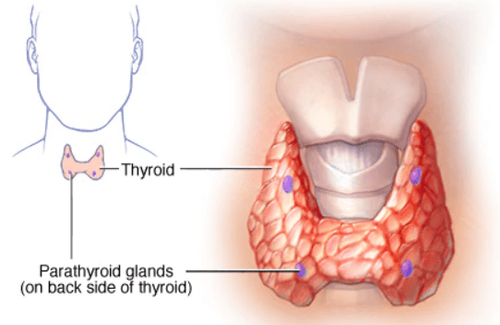
Xạ hình giáp chẩn đoán nhân độc tuyến giáp
3. Treatment of toxic thyroid nodules
3.1. Surgery To treat toxic thyroid nodules, surgery is the primary treatment method often chosen to:
Heal toxic nodules; Removal of cold nodules does not rule out carcinogenesis. After preparing well for antithyroidism, most surgeons will take a fairly large tissue to avoid recurrence, from removing the nucleus to completely removing the thyroid gland. Some complications also exist such as Graves surgery (including: hypoparathyroidism, recurrent nerve palsy,...) and require long-term thyroid hormone therapy.
3.2. Radioactive Iodine Treatment with I131 is a method of treating toxic goiter with many advantages. However, this method often gives results more slowly than surgical treatment. To return to normal is usually after 4 to 6 months, sometimes additional treatment will be needed.
I131 will be focused on hot core areas for the purpose of destroying hyperactive organizations. Compared with Basedow treatment, the usual dose of radiation in the treatment of thyrotoxic goiter will be higher, which can be divided into several doses (usually divided into 2 doses) with an average interval of 10 days between 2 treatments. .
To avoid possible complications during radiation treatment such as acute hyperthyroidism, synthetic antithyroid drugs can be prepared in advance. In addition, patients need to be regularly monitored to consider the risk of cancer, hypothyroidism.
This treatment of toxic thyroid nodules is contraindicated for:
Pregnant women; Women who are breastfeeding; Allergy to Iodine.
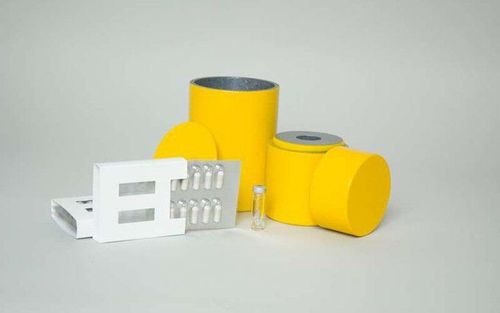
Điều trị bằng I131 là phương pháp điều trị bướu nhân độc tuyến giáp mang rất nhiều ưu điểm
In summary, if the patient has had thyroid goiter many years before, it is possible to develop toxic nodular goiter. These cases need to see specialists for examination, diagnosis and treatment.
Vinmec International General Hospital is the address for examination, treatment and prevention of diseases, including endocrine diseases and thyroid diseases. When performing the examination process at Vinmec, customers will be welcomed and used the modern facilities and machinery system along with perfect medical services under the guidance and advice of the doctors. Good doctors, well-trained both at home and abroad. Accordingly, in order to improve the quality of examination and services, Vinmec has and is continuing to deploy a package of screening and screening for thyroid diseases. When using this service pack, customers will get: Thyroid function test. Screening & early detection of common thyroid diseases such as: simple goiter, hyperthyroidism, toxic thyroid nodules, hypothyroidism, thyroiditis, thyroid nodules, thyroid cancer, ... to from That has appropriate and timely treatment measures, providing a good prognosis for patients.
Please dial HOTLINE for more information or register for an appointment HERE. Download MyVinmec app to make appointments faster and to manage your bookings easily.




